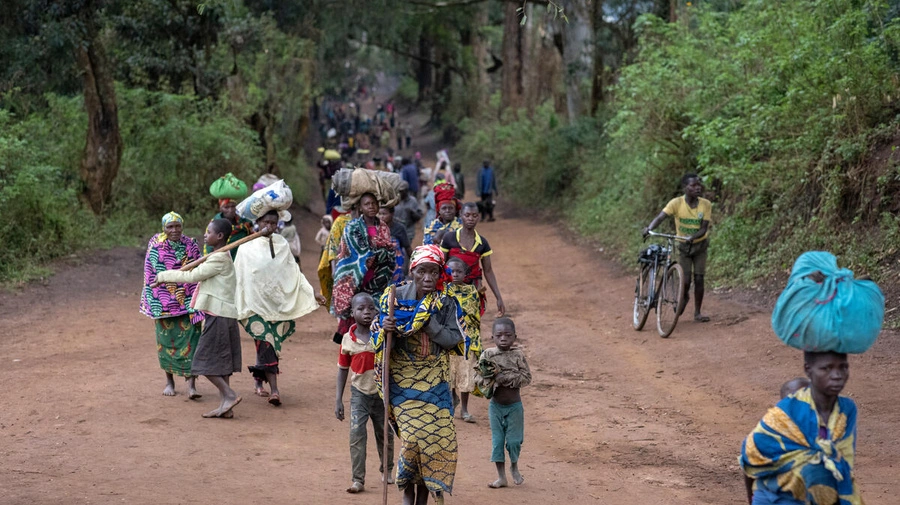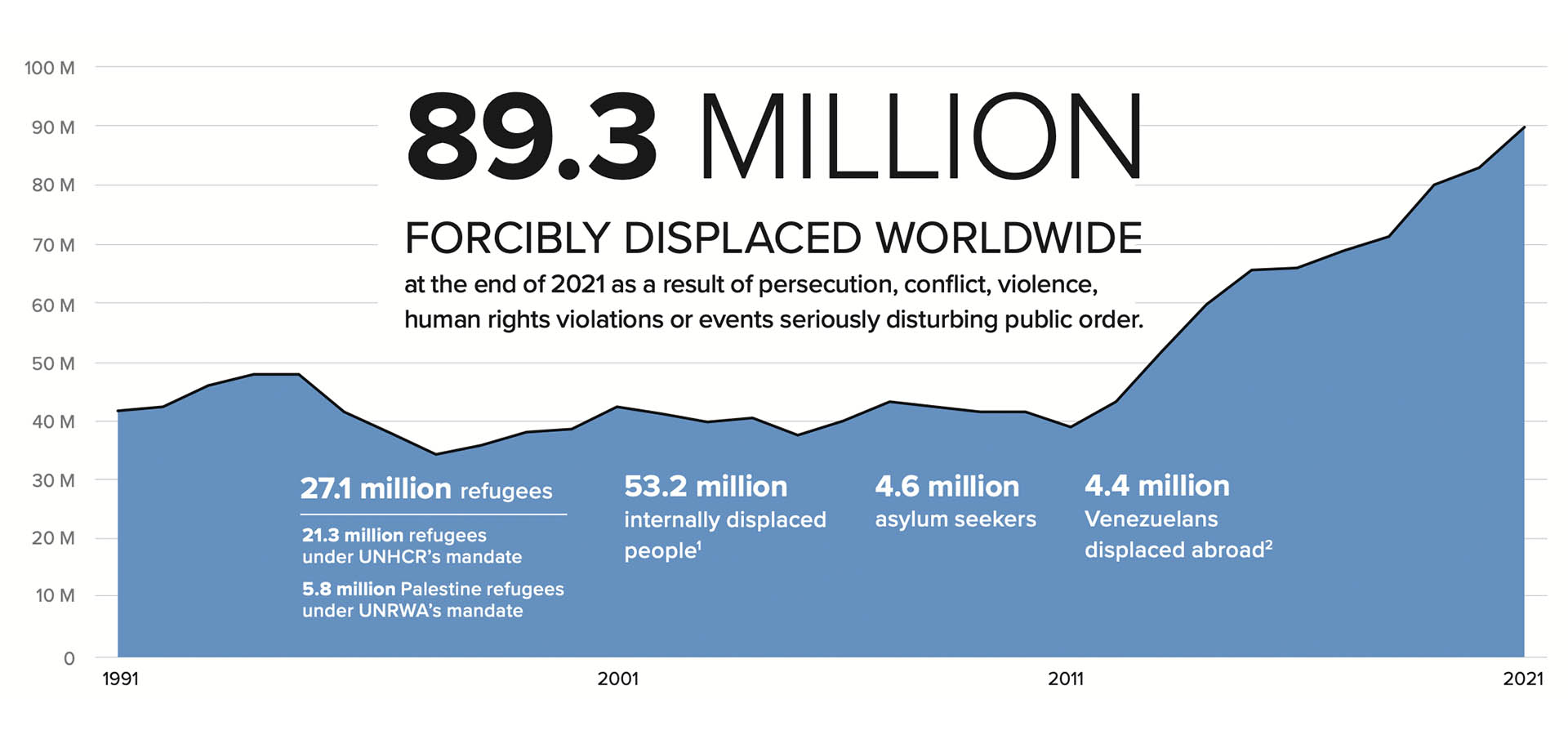
On Wednesday (June 14), the United Nations (UN) reported that a record 110 million people worldwide have been driven from their homes.
A report by the United Nations High Commissioner for Refugees (UNHCR), the ongoing Russian invasion of Ukraine, refugees fleeing Afghanistan, and the conflict in Sudan have caused an unprecedented number of people to flee their country for safety abroad as well as internal displacement.

"We have 110 million people who have fled because of conflict, persecution, discrimination, and violence, often mixed with other motives -- in particular the impact of climate change," UNHCR chief Filippo Grandi said during a press conference. It's a pretty severe assessment of the state of our world, he remarked.
The organisation said 108.4 million people were displaced in its Global Trends in Forced Displacement study from the previous year. It further stated that the recent turmoil in Sudan had caused 110 million additional people to flee their homes.
The number was 19.1 million more than in 2021, marking the largest growth since records have been kept in 1975. Grandi stated that as of 2022, 62.5 million people were internally displaced, leaving 35.3 million refugees worldwide.


The majority of those who are impacted by violence and natural catastrophes are still women and children. According to the UN, children made up 41% of all refugees as of the end of last year. Women and girls made up about 51%.
Grandi, the chief of UNHCR, voiced concern that the number could rise in the upcoming months and years.
He claimed that although this year's rising displacement might increase, it will nevertheless guarantee a "more hostile" climate change for refugees. "Leadership is about convincing your public opinion that there are people that deserve international protection."
The chief continued by saying that nations must continue to be open so that individuals can apply for asylum and shelter to feel safe.
Grandi stated that the refugee organisation is not in a favourable financial shape this year due to ongoing financial issues. Only 16% of the funds designated for Sudan, get funded. He further stated that the conflict in Sudan might last for some time.
According to official estimates, about 1.4 million people have been internally displaced since the conflict between the groups started in April, while another 467,000 people are believed to have fled Sudan.
UNHCR spokesperson Kathryn Mahoney quoted, "It's clear that the climate crisis ... is driving displacement," citing instances such as Somalia, where a protracted drought has exacerbated a famine crisis, and Pakistan, which last year had devastating floods.
"But it's also making life a lot harder for people who have already been forced to flee. More than "70% of the world's refugees and displaced people come from some of the most climate-vulnerable countries," Mahoney notes.
Turkey (3.6 million), Iran (3.4 million), Colombia (2.5 million), Germany (2.1 million), and Pakistan (1.7 million) are the nations that are currently housing the most refugees.
In contrast, almost 390,000 refugees returned to 38 different countries last year, while 5.7 million internally displaced individuals went back to their homes.
UNHCR, the UN Refugee Agency Report - https://www.unhcr.org/global-trends
Share This Post On
0 comments
Leave a comment
You need to login to leave a comment. Log-in


